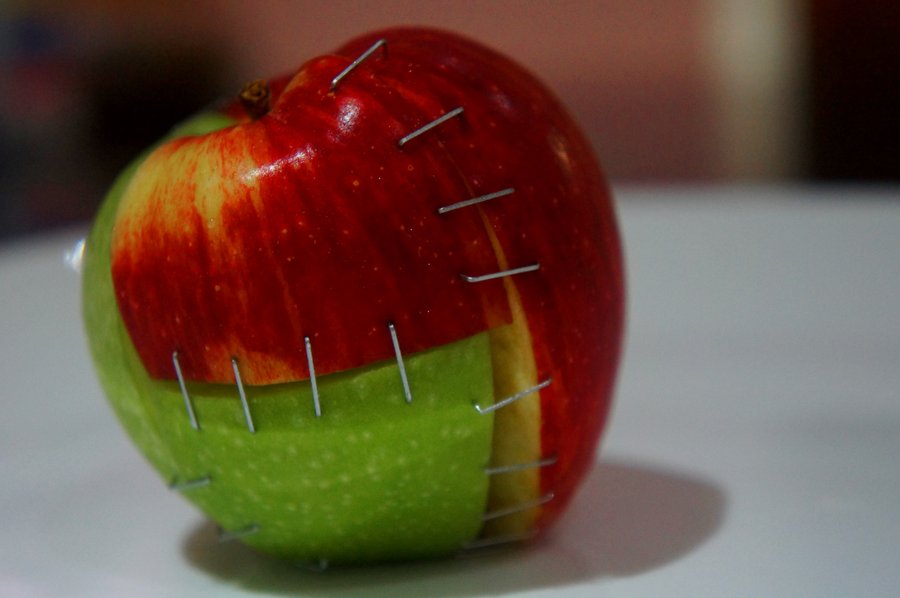What self-harm can mean for some people, and some ways to talk about it.
Self-harm is something I have avoided talking about most of my life, though I’ve been doing it since I was 14.
I don’t talk about it because of the way many people react to it. They can be horrified. They can be worried. They can be disgusted. They can be confused. They can misunderstand.
I don’t blame people for these reactions. If you have not self-harmed, it can be a difficult thing to comprehend. Of course you don’t want someone you love to hurt themselves. You might not understand why they would want to do that.
The first person I told about my self-harm was a counsellor. She immediately told me it was a bad thing to be doing. She was concerned. She wanted to tell my family. She told me I should stop.
These were not things I needed to hear. At that point in my life, I was trying to deal with depression, and with a loss of control in my life. Self-harming was the one thing I felt couldn’t be taken away from me. The thing that made me feel real.
As a result, I never went back to the counsellor, which was very unhelpful. I needed to talk. But her reaction had caused me to distrust her.
People can think that self-harm is the first step towards suicide. They might think that someone who is committing self-harm is doing it because they want to die. Often, they are doing it because they are trying to live.
Some people think that self-harm is “attention seeking.” For some people, it might be – and that’s ok. It’s another way of asking for help, of showing people that you are hurting. But for many of us, the last thing we want is for everyone to know about our self-harming. We will do our best to hide it. And hiding it can be really detrimental. It contributes to the taboo culture. It might mean we don’t get the help we need.
I self-harm because it helps me express the pain I am feeling. It helps me cope when I am overwhelmed with emotions. It becomes a release. After cutting, I feel more clear-headed and able to cope with whatever I’m dealing with.
It is a physical manifestation of my internal experience. It makes me feel in control. You can therefore understand why it would be very upsetting if someone tried to take that away from me, by making me feel like my coping mechanism is a nasty thing.
Here are some ways to talk to people about self-harming
- First of all, make sure they want to talk about it with you.
- Let them know that you understand what self-harm can mean. Let them know that you understand that self-harming doesn’t mean they are crazy or suicidal.
- Let them know you’re not going to share their self-harming with anyone else, unless you believe they are at the point where they are risking their life. You can help determine this by asking them if they feel like they are in control of their self-harming.
- Ask them what their self-harm means to them. Is it helpful?
- Ask them if their self-harm makes their mood better or worse.
- Ask them if they would like help to stop self-harming.
- Ask them what their plans are. What are they doing tomorrow? What do they want to do next week? Next year? Will self-harm be a part of that? (This can help them focus on the future, and can help you see if they might be feeling suicidal. It can also show how self-harm is often a short-term relief option).
For me, self-harm is an addiction that happens in cycles. It has a clear pattern to it. I know when I’m going to do it, and I know that it will be short-term. I used to feel like it was an addiction I had to beat, that all it did was show how “crazy” I am. Now, I know it is a coping mechanism that is perfectly acceptable, for me.
I am not saying that everyone who self-harms is not in danger. If someone you know is self-harming, you have a reason to be starting a conversation with them. But I am saying it is best not to make assumptions. Choose your words carefully. You may end up alienating them by making them feel like you are trying to take something away from them, or that you think what they are doing is terrible and wrong. They need your acceptance more than ever.
Some helpful links
Helpguide – Cutting and Self-harm information
Suicide Prevention NZ – Responding to people at risk
Lifelife contact details (if you need to talk)

